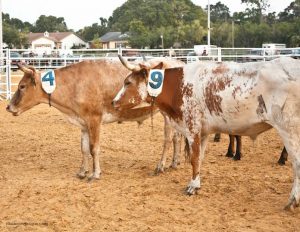A report released by Compassion in World Farming and the World Society for the Protection of Animals has found that intensive factory farming is putting human health at risk. Factory farming that includes overcrowded conditions stress animals, increasing the risk of infection and the risk of these bacteria ending up in our food.
 In addition, the risk of swine and bird flu pandemics may be increased by these farms. The farms are often located in the same area, which increases the risk. Transporting animals over long diseases increases the risk of the spread and evolution of viruses from one species to another.
In addition, the risk of swine and bird flu pandemics may be increased by these farms. The farms are often located in the same area, which increases the risk. Transporting animals over long diseases increases the risk of the spread and evolution of viruses from one species to another.
Eggs from hens confined in small cages have more Salmonella bacteria than eggs from hens raised in cage-free systems. Eggshells have been contaminated with bacteria for years because the egg leaves the hen’s body through the same passageway as feces. But recently, Salmonella bacteria have been found inside uncracked, whole eggs because hens are infected in their reproductive tracts.
The farm environment is the most important source of Campylobacter, which the World Health Organization recently called the most important foodborne pathogen. This bacteria is found more often in chickens that are suffering acute stress such as thinning of flocks. In addition, Campylobacter in chickens that are raised without chronic stress is more likely to remain in the animal’s gut rather than penetrating the meat. And slower growing breeds are usually at lower risk for Campylobacter infections.
Levels of Shiga-toxin producing E. coli (STEC) bacteria are higher in U.S. cattle, which are usually fed grain in feedlots instead of being raised on pasture. Animals can carry these bacteria without developing disease themselves. Scientists say that feedlots are a “particular risk” for E. coli infection, with transmission from one animal to another much more likely.
Dil Peeling, Director of Campaigns at Compassion in World Farming said, “our new report makes for worrying reading. We need to act to defuse this human health time bomb before it’s too late. Animals need, and deserve to be in higher welfare systems. This report suggests that, as well as being better for animals, higher welfare systems mean less of a disease risk for us.”
The organizations recommend that governments work together to develop farming policies for humane sustainable food supplies. Animal breeds, diets, and management conditions must minimize stress and optimize animal welfare. Surveillance and vaccination are other important tools governments should implement. Transportation time of animals to slaughter should be minimized as well. And non-therapeutic antibiotic use should be reduced to decrease the evolution of antibiotic-resistant bacteria.




